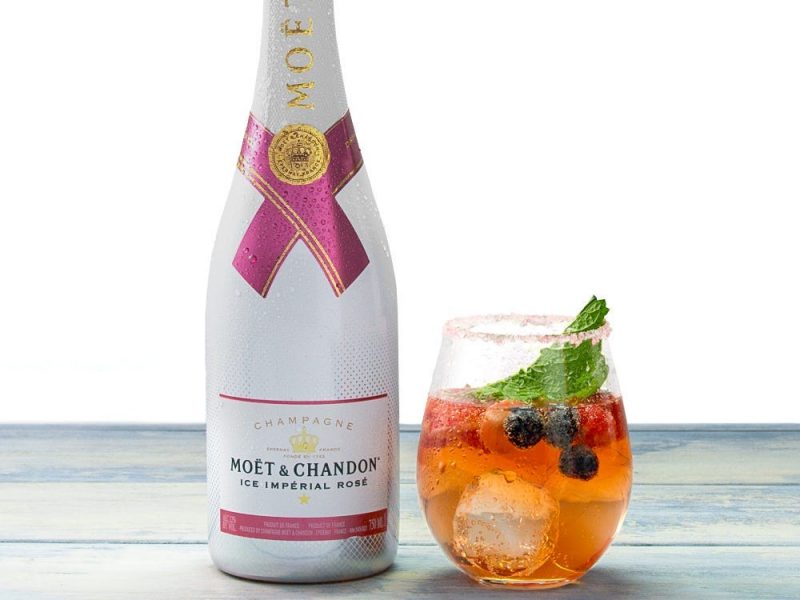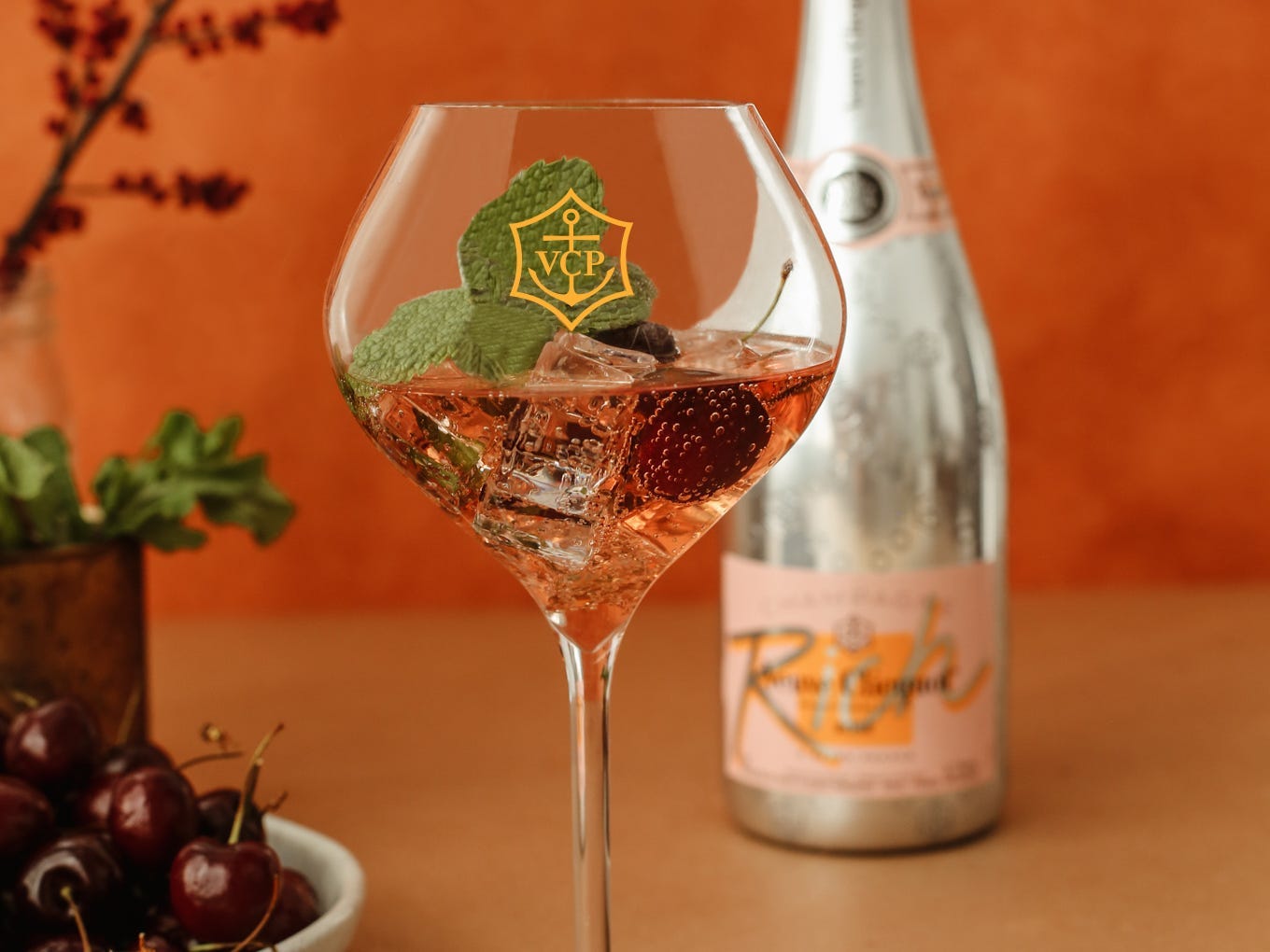- Drinking Champagne on ice has become a summertime staple.
- The trend started in the South of France and has become popular around the world.
- Moët & Chandon created the first Champagne crafted to serve with ice.
- We spoke to four experts to find out the do’s and don’ts of drinking Champagne on ice.
- Visit Business Insider’s homepage for more stories.
The easiest way to pretend you are in a glamorous oceanfront restaurant in the South of France is by popping an ice cube in your glass of Champagne.
La Piscine, which meals pool in French, has long been a staple drink on languid summer days in Saint-Tropez. In recent years, La Piscine has spread across the globe. Every summer, as temperatures rise, more Champagne lovers break one of the cardinal rules of wine by putting ice in their drinks.
Traditionally, putting ice in any wine was considered uncouth, but based on the number of people putting ice in their Champagne (and in their rosé), those days are over. Attitudes towards wine have shifted as a younger audience embraces wine as a drink for all occasions, not just pairing with food. As Tonya Pitts, Sommelier and Wine Director at One Market Restaurant in San Francisco, told Business Insider, Champagne is no longer just for holidays and celebrations – it’s a drink for any time.
“Now that there’s a younger audience drinking wine, they’re much more open to experimentation and trying something new and different,” Pitts said. “Poolside or at the beach, I would have no problem popping a bottle of Champagne.”
That doesn't mean that you should put ice in any Champagne. All wines are carefully blended to achieve the perfect balance, and adding ice dilutes it and changes the flavors. With a delicate drink like Champagne, the effect is even more pronounced, and the Champagne will become unbalanced in just a few minutes.
Champagnes designed for ice
After spending his summers in France observing even the most elegant travelers putting ice in his perfectly blended Champagne, Moët & Chandon's Chef de Cave, Benoît Gouez, decided to create a cuvée - the first in the world - designed to be drunk on the rocks. Moët & Chandon Ice Impérial and Ice Impérial Rosé are more concentrated than traditional Champagne and have a higher dosage.
The result is more aromatic and sweeter than Brut Champagne. This means it doesn't just stand up to being diluted by ice - it was actually designed with melting ice as an ingredient.
As Gouez told Business Insider, Moët & Chandon Ice Impérial Rosé "supports a higher dosage to anticipate dilution and a refreshing finish."

A few years later, Veuve Clicquot introduced Veuve Clicquot Rich, which is also designed for ice dilution, but goes a step further and can be used in cocktails or garnished with fruit. Didier Mariotti, Veuve Clicquot's Chef de Cave, told Business Insider that the Champagne was designed with the modern drinker in mind.
"We started to see a rise in the desire to mix Champagne over ice and with fresh ingredients, and were inspired by a new vision for modern drinking," Mariotti said. "Plus, we saw that some 'Champagne cocktails' were made with Yellow Label, whereas our Champagne, with its relatively low dosage, is not made for use in cocktails because they often require some sweetness. So we wanted to create a Champagne that is specifically designed with this in mind."
Mind your ice
Even if you don't have a bottle of Champagne with a higher dosage designed to serve with ice, you can still pop an ice cube in your glass.
Chelsie Pietras, a wine expert, says, "I always put ice in my wine in the summer months. My only note about ice in wine is that it has to be ice made from filtered or bottled water because when it melts it will impart the flavors of the ice into the wine. You also don't want crushed ice - you want actual, good-sized ice cubes because they will melt slower and won't dilute as much."
The only Champagne you should never serve with ice? Beautiful vintage Champagne, which would be ruined by the melting ice.

